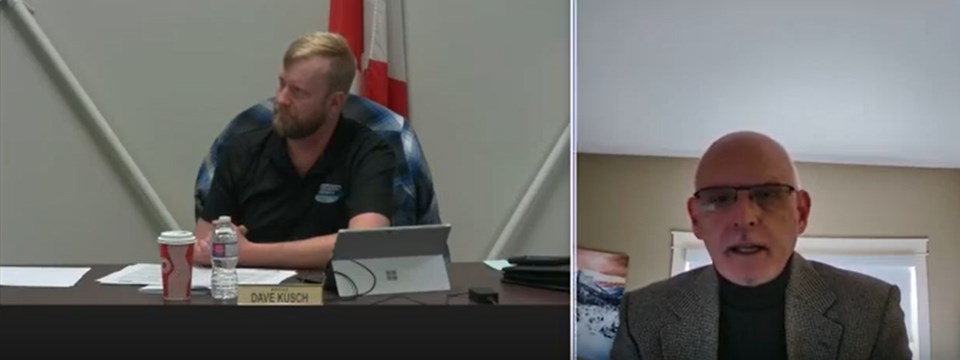WOODLANDS COUNTY - In one of the worst-kept secrets, Woodlands County councillors approved a three per cent property tax increase on April 24 when they approved the mill rate during their April 24 meeting as part of the 2024 final operating and capital budgets.
That is because the county included the increase in its economic recovery plan, which council approved in 2019.
Council approved the plan after the county failed to collect $9.5 million in unpaid property taxes, the bulk of which were from two large energy companies.
The crux of the plan was a 15 per cent service decrease along with a 15 per cent property tax increase phased in incrementally at three per cent a year. This is the last year of the plan.
Interim corporate services director Andrew World, who appeared via teleconference, said the 2024 budget includes a one-percent increase for controllable items. Wolf also noted that the council approved an additional $1,805,531 of initiatives as part of the interim budget.
"For [capital projects] funded by taxation, we formulated our plan based on council's approval of $3.875 million," he said.
The agenda package notes that administration used 2022's capital budget as a guide, which gave them $3 million as a base amount, which they added to with $875,000 from joint surpluses in 2022 and 2023.
"Net costs to the budget, including the initiatives, was an increase of 7.41 per cent; without them, it is a 0.56 per cent, well below the one per cent recovery plan threshold," he said, adding that leaves approximately $1.3 million that will be transferred to reserves. "That is down about $650,000 from the [interim budget]."
World also said that staff did much work amending the budget without net financial impact, such as moving capital funding to the correct departments.
He added in the last five years, capital expenditures were either budgeted under administration or infrastructure.
World added that the municipality also cancelled or deferred other programs, such as the municipality's that had a net zero impact on the final budget, such as cancelling the county's work in combating the mountain pine beetle, eliminating both the provincial grant and expense or deferred, as in the case of the remaining water crossing grant, so that they could match the expense.
Since the interim budget, the municipality has brought in $768,516 more revenue than initially forecast and $218,828 less in expenses (World noted earlier that this was done through savings from public works and the cancellation of the purchase of a grain bag roller), but these were offset by increased operating expenses of over $1.6 million.
"The result is a net change to the surplus of $667,895, mostly because of one major accrual we had to make," he said.
The item World referred to was $932.032 in addition to a contingency reserve fund for property tax appeals.
"We have one major ratepayer that appealed their property taxes last year," World said, adding the municipality had put the funds aside in 2023. "We were hoping that the appeal, but as far as I know, it is not even on the radar. If we are successful, we will have $2 million in reserves. In the worst-case scenario, we will have the funds set aside if we are not."
He also noted that depreciation increased by $61,205, over what had been forecast.
World explained that the increase in depreciation was due to a provincial change requiring municipalities to change how they plan for and record large-scale asset retiring obligations (ARO) such as landfills. They also set aside $279,000 in 2024, and the county will add similar amounts in the coming year to build up enough funds to replace the aging infrastructure.
The other significant addition that impacted the final budget was the municipality's requisitions to collect on behalf of the province, the most significant being school taxes.
World said county staff did their best to estimate how much they would have to collect and, therefore, build into the budget but noted the final number from the province came on April 19.
"The requisition is up significantly. We anticipated an increase, but it is up $70,000 more," World said. "Essentially, the province is keeping the tax rates the same, but they are passing along the growth in the requisitions."
The public budget information package notes that all the provincial requisitions account for a $337,630 change from the interim budget and a $430,685 jump from the 2023 budget, which saw total requisitions at $5,592,785.
Reeve Dave Kusch asked World how much of a change the increase would mean for the average ratepayer, especially in the school requisition.
World said that would be hard to tell because how much people pay depends on their property assessment value. However, if it remains the same, a resident would see roughly a 14 per cent increase in school tax on their tax bill. He added that residents would see approximately the same increase in senior housing requisition.



